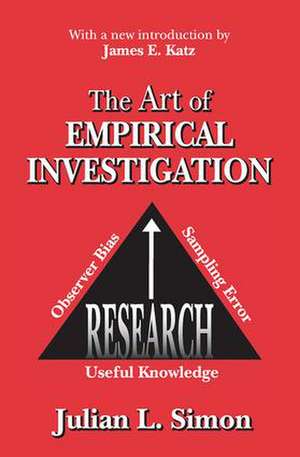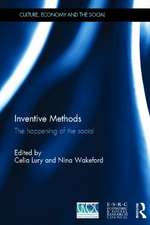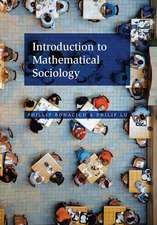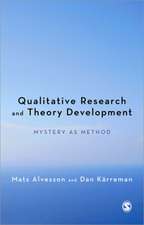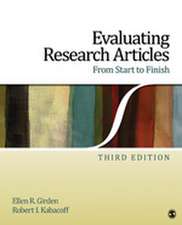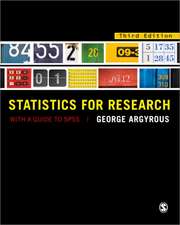The Art of Empirical Investigation
Editat de Julian Simonen Limba Engleză Hardback – 20 sep 2017
The Art of Empirical Investigation is a textbook on the basics of social-scientific research. It discusses all the important empirical methods used in social science, and its examples, drawn from a wide variety of academic and applied fields, illustrate the use of each method in its most appropriate context. The actual decisions a researcher must make at every stage of a project are emphasized, as well as obstacles to knowledge--such as observer bias, deception, unreliability of data, and sampling costs--and how to overcome them. Presupposing nothing, the book introduces the reader to the foundations of empirical social-science research, regardless of a specific field. It also makes an important contribution to beginning researchers' understanding of an operational definition of causality, which cuts through philosophical obscurity and teaches the researcher how to decide whether or not a given relationship is causal.
| Toate formatele și edițiile | Preț | Express |
|---|---|---|
| Paperback (1) | 429.71 lei 6-8 săpt. | |
| Taylor & Francis – 30 sep 2003 | 429.71 lei 6-8 săpt. | |
| Hardback (1) | 1000.27 lei 6-8 săpt. | |
| Taylor & Francis – 20 sep 2017 | 1000.27 lei 6-8 săpt. |
Preț: 1000.27 lei
Preț vechi: 1219.84 lei
-18% Nou
Puncte Express: 1500
Preț estimativ în valută:
191.39€ • 199.85$ • 158.05£
191.39€ • 199.85$ • 158.05£
Carte tipărită la comandă
Livrare economică 16-30 aprilie
Preluare comenzi: 021 569.72.76
Specificații
ISBN-13: 9781138534322
ISBN-10: 1138534323
Pagini: 584
Dimensiuni: 152 x 229 x 32 mm
Greutate: 0.45 kg
Ediția:1
Editura: Taylor & Francis
Colecția Routledge
Locul publicării:Oxford, United Kingdom
ISBN-10: 1138534323
Pagini: 584
Dimensiuni: 152 x 229 x 32 mm
Greutate: 0.45 kg
Ediția:1
Editura: Taylor & Francis
Colecția Routledge
Locul publicării:Oxford, United Kingdom
Cuprins
Basic Research Methods in Social Science; 1: Introduction; I: Part One the Process of Social-Science Research; 2: The Language of Research: Definitions and Validitg; 3: Basic Concepts of Research; 4: Types of Empirical Research; 5: Theory, Model, Hypothesis, and Empirical Research; 6: Choosing Appropriate Proxies for Theoretical Variables; II: Part Two Research Decisions and Procedures; 7: The Steps in an Empirical Research Study; 8: How to Assess the Potential Value of Research Projects; 9: Sampling; 10: Experiments: Pro, Con, and how to do them; 11: Designing Experiments; 12: Non-Experimental Designs Far Studying Relationships; 13: Surveys: Pro, Can, and how to do them; 14: Same Other Qualitative and Quantitative Techniques; 15: Classifying, Measuring, and Scaling; 16: Scaling Human Responses; 17: Data Handling, Adjusting, and Summarizing; III: Part Three the Obstacles to Social-Science Knowledge and Wags to Overcome them; 18: The Concept of Obstacles in the Search for Ernpical Knowledge; 19: Obstacles Created by the Humanness of the Observer: Appendix on Interviewing; 20: Complexities and Intractability of the Human Mind: Appendix an Questionnaire Construction; 21: Obstacles to Obtaining Adequate Subject Matter; 22: Obstacles to The Study of Changes Aver Time; 23: Obstacles to the Search for Causal Relationships; 24: The Master Obstacle: Cost; IV: Part Four Extracting the Meaning of Data; 25: Analysis of Simple Data: Association and Regression; 26: Searching for Relationships: Analysis of Complex Data; 27: Inferential Statistics: Introduction; 28: Probability and Hypothesis Testing by the Monte Carlo Method; 29: Hypothesis Testing with Measured Data; 30: Correlation and other Statistical Issues; 31: How Big a Sample?; 32: The Concept of Causality in Social Science, with Notes on Prediction, Law, Explanation, and Function; V: Part Five Epilogue; 33: The Nature, Powers, and Limits of Social Science
Descriere
Julian Simon was known for his methodical, and often controversial, writings challenging conventional beliefs about overpopulation, pollution, disappearing farmland, and the scarcity of energy sources and raw materials
